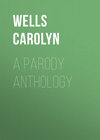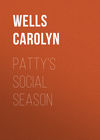Читать книгу: «Raspberry Jam», страница 11
Chapter XV
Marigny The Medium
The journey ended at the rooms of Marigny, the psychic recommended by Willy Hanlon.
As Fibsy, his bright eyes wide with wonder, found himself in the unmistakable surroundings of dingy draperies, a curtained cabinet and an odor of burning incense, he exclaimed to himself, “Gee! a clairviant! Now for some fun!”
Aunt Abby, apparently aware of the proprieties of the occasion, seated herself, and waited patiently.
At a gesture from her, Fibsy obediently took a seat near her, and waited quietly, too.
Soon the psychic entered. He was robed in a long, black garment, and wore a heavy, white turban, swathed in folds. His face was olive-colored—what was visible of it for his beard was white and flowing, and a heavy drooping moustache fell over his lips. Locks of white hair showed from the turban’s edge, and a pair of big, rubber-rimmed glasses of an amber tint partially hid his eyes.
The whole make-up was false, it was clear to be seen, but a psychic has a right to disguise himself, if he choose.
Fibsy gave Marigny one quick glance and then the boy assumed an expression of face quite different from his usual one. He managed to look positively vacant-minded. His eyes became lack-luster, his mouth, slightly open, looked almost imbecile, and his roving glance betokened no interest whatever in the proceedings.
“Mr. Marigny?” said Miss Ames, eagerly anxious for the séance to begin.
“Yes, madam. You are three minutes late!”
“I couldn’t help it—the traffic is very heavy at this hour.”
“And you should have come alone. I cannot concentrate with an alien influence in the room.”
“Oh, the boy isn’t an alien influence. He’s a little friend of mine—he’ll do no harm.”
“I’ll go out, if you say, mister,” Fibsy turned his indifferent gaze on the clairvoyant.
“You’ll do nothing of the sort,” spoke up Miss Ames. “I’m accustomed to séances, Mr. Marigny, and if you’re all right—as I was told you were—a child’s presence won’t interfere.”
Evidently the psychic saw he had no novice to deal with, and he accepted the situation.
“What do you want to know?” he asked his client.
“Who killed Sanford Embury—or, did he kill himself. I want you to get into communication with his spirit and find out from him. But I don’t want any make-believe. If you can’t succeed, that’s all right—I’ll pay your fee just the same. But no poppycock.”
“That’s the way to look at it, madam. I will go into the silence, and I will give you only such information as I get myself.”
The man leaned back in his chair, and gradually seemed to enter a hypnotic state. His muscles relaxed, his face became still and set, and his breathing was slow and a little labored.
Fibsy retained his vacuous look he even fidgeted a little, in a bored way—and rarely glanced toward the man of “clear sight.”
Miss Ames, though anxious for results, was alert and quite on her guard against fraud. Experienced in fake mediums, she believed Willy Hanlon’s assertion that this man was one of the few genuine mystics, but she proposed to judge for herself.
At last Marigny spoke. His voice was low, his tones monotonous and uninflected.
“Aunt Abby—Aunt Westminster Abbey” the words came slowly.
Miss Ames gave a startled jump. Her face blanched and she trembled as she clutched Fibsy’s arm.
“That’s what Sanford used to call me!” she whispered. “Can it really be his spirit talking to me through the medium!”
“Don’t worry,” the voice went on, “don’t grieve for me—it’s all right—let it go that I took my own life—”
“But did you, Sanford—did you?” Miss Ames implored.
“It would be better you should never know.”
“I must know. I’ve got to know! Tell me, Sanford. It wasn’t Eunice?
“No—it wasn’t Eunice.”
“Was it—oh, San—was it—I?”
“Yes, Aunt Abby—it was. But you were entirely irresponsible—you were asleep—hypnotized, perhaps—perhaps merely asleep.”
“Where did I get the stuff?”
“I think somebody hypnotized you and gave it to you—”
“When? Where?”
“I don’t know—it is vague—uncertain—But you put it in my ear—remember, Aunt Abby, I don’t blame you at all. And you must not tell this. You must let it go as suicide. That is the only way to save yourself—”
“But they suspect Eunice—”
“They’ll never convict her—nor would they convict you. Tell them you got into communication with my spirit and I said it was suicide.”
“Ask him about the raspberry jam,” put in Fibsy, in a stage whisper.
“What!” the medium came out of his trance suddenly and glared at the boy.
“I told you I could do nothing if the child stayed here,” Marigny cried, evidently in a towering passion. “Put him out. Who is he? What is he talking about?”
“Nothing of importance. Keep still, McGuire. Can you get Mr. Embury’s spirit back, sir?”
“No, the communion is too greatly disturbed. Boy, what do you mean by raspberry jam?”
“Oh, nothin’,” and Fibsy wriggled bashfully. “You tell him, Miss Ames.”
It needed little encouragement to launch Aunt Abby on the story of her “vision” and she told it in full detail.
Marigny seemed interested, though a little impatient, and tried to hurry the recital.
“It was, without doubt, Embury’s spirit,” he said, as Aunt Abby finished; “but your imagination has exaggerated and elaborated the facts. For instance, I think the jam and the gasoline are added by your fancy, in order to fill out the full tale of your five senses.”
“That’s what I thought,” and Fibsy nodded his head. “Raspberry jam! Oh, gee!” he exploded in a burst of silly laughter.
Marigny looked at him with a new interest. The amber-colored glasses, turned toward the boy seemed to frighten him, and he began to whimper.
“I didn’t mean any harm,” he said, “but raspberry jam was so funny for a ghost to have on him!”
“It would have been,” assented Marigny, “but that, I feel sure, existed only in Miss Ames’ fancy. Her mind, upset by the vision, had strange hallucinations, and the jam was one—you know we often have grotesque dreams.”
“So we do,” agreed Fibsy; “why once I drempt that—”
“Excuse me, young sir, but I’ve no time to listen to your dreams. The séance is at an end, madam. Your companion probably cut it off prematurely—but perhaps not. Perhaps the communication was about over, anyway. Are you satisfied, Miss Ames?”
“Yes, Mr. Marigny. I know the appearance of Mr. Embury was a genuine visitation, for he called me by a peculiar name which no one else ever used, and which you could not possibly know about.”
“That is indeed a positive test. I am glad you received what you wished for. The fee is ten dollars, madam.”
Aunt Abby paid it willingly enough, and with Fibsy, took her departure.
On reaching home they found Alvord Hendricks there. Mason Elliott had tarried and Fleming Stone, too, was still there. Eunice was awaiting Aunt Abby’s return to have dinner served.
“I thought you’d never come, Auntie,” said Eunice, greeting her warmly. Eunice was in a most pleasant mood, and seemed to have become entirely reconciled to the presence of Stone.
“You will dine here, too, Terence,” she said kindly to the boy, who replied, “Yes, ma’am,” very respectfully.
“Well, Eunice,” Aunt Abby announced, after they were seated at the table, “I’m the criminal, after all.”
“You seem pretty cheerful about it,” said Hendricks, looking at her in astonishment.
“Well, I wasn’t responsible. I did it under compulsory hypnotism.”
“You owned up to it before, Aunt Abby,” said Eunice, humoring her; “you said—”
“I know, Eunice, but that time it was to shield you. Now, I know for certain that I did do it, and how it came about.”
“Dear Aunt Abby,” and Elliott spoke very gently, “don’t you talk about it any more. Your vagaries are tolerated by us, who love you, but Mr. Stone is bored by them—”
“Not at all,” said Fleming Stone; “on the contrary, I’m deeply interested. Tell me all about it, Miss Ames. Where have you been?”
Thus encouraged, Aunt Abby told all.
She described the séance truthfully, Fibsy’s bright eyes—not lack-luster now—darting glances at her and at Stone as the tale proceeded.
“He was the real thing—wasn’t he, McGuire?” Miss Ames appealed to him, at last.
“You bet! Why, if the side wire of his beard hadn’t fetched loose and if his walnut juice complexion hadn’t stopped a mite short of his collar, I’d a took him for a sure-fire Oriental!”
“Don’t be so impertinent, Terence,” reproved Stone; “Miss Ames knows better than you do.”
“It doesn’t matter that he was made up that way,” Aunt Abby said, serenely; “they often do that. But he was genuine, I know, because—why, Eunice, what did Sanford use to call me—for fun—Aunt what?”
“Aunt Westminter Abbey,” said Eunice, smiling at the recollection.
“Yes!” triumphantly; “and that’s what Sanford called me to-day when speaking to me through the medium. Isn’t that a proof? How could that man know that?”
“I can’t explain that,” declared Elliott, a little shortly, “but it’s all rubbish, and I don’t think you ought to be allowed to go to such places! It’s disgraceful—”
“You hush up, Mason,” Miss Ames cried; “I’ll go where I like! I’m not a child. And, too, I wasn’t alone—I had an escort—a very nice one.” She looked kindly at Fibsy.
“Thank you, ma’am,” he returned, bobbing his funny red head. “I sure enjoyed myself.”
“You didn’t look so; you looked half asleep.”
“I always enjoy myself when I’m asleep—and half a loaf is better’n no bed,” the boy grinned at her.
“Well, it may all be rubbish,” Alvord Hendricks said, musingly; “and it probably is—but there are people, Mason, who don’t think so. Anyway, here’s my idea. If Aunt Abby thinks she poisoned Sanford, under hypnotism—or any other way—for the love of heaven, let it go at that! If you don’t—suspicion will turn back to Eunice again—and that’s what we want to prevent. Now, no jury would ever convict an old lady—”
“Nor any woman,” said Elliott. “But that isn’t the whole thing. I say, Alvord, since Mr. Stone is on the job, suppose we give him full swing—and let him find the real murderer. It wasn’t Eunice!”
His words rang out so vibrantly that Stone gave him a quick glance. “You’re sure?” he asked, as it seemed, involuntarily.
“I am,” responded Elliott, with a satisfied nod of his handsome head.
“But your being sure doesn’t help much, Mason,” Eunice said, a despondent look coming into her eyes. “Are you sure, Mr. Stone?”
“I can’t quite answer that question yet, Mrs. Embury,” the courteous voice replied. “Remember, I’ve only just begun to look into the matter.”
“But you know all about it—from Mr. Shane and Mr. Driscoll.”
“I know what they think about it—but that’s a different story.”
“You don’t agree with their deductions, then?” asked Hendricks.
“I don’t agree with their premises—therefore—” Stone smiled cryptically, and left the sentence unfinished and ambiguous, which was his deliberate intention.
“We will have coffee in the living-room,” said Eunice, as she rose from the table. Always a charming hostess, she was at her best to-night. Her thin black gown was becoming and made her fair throat and arms seem even whiter by contrast.
She stood back, as the others left the room, and Hendricks, tarrying, too, came close to her.
“Brace up, dear,” he said; “it will all come out right. I’m sorry Elliott dragged in this Stone, but—it will be all right, somehow.”
“But it’s all so mysterious, Alvord. I don’t know what to do—or say—”
“Don’t lose your temper, Eunice. Let me advise you strongly as to that. It never does any good—it militates against you. And here’s another thing—Are you afraid of the little Desternay?”
“Afraid—how?” but Eunice paled.
“Afraid—she knows something—oh, something injurious to—”
“To me? She knows heaps!” The haughty head tossed, and Eunice looked defiant.
“You beauty!” and Hendricks took a step nearer. “Oh, you splendid thing! How I adore you. Eunice—you are a goddess to-night! And you are for me! Some day—oh, I’m not going to say it now–don’t look so alarmed—but, you know—oh, Sweet, you know! And you yes, you, too, my splendid Tiger—”‘
“Hush, Alvord! Never call me that!”
“No, I beg pardon. And I don’t want to. That was San’s own name for you. I shall call you my Queen! My glorious Queen-woman!”
“Oh, stop! Don’t you dare make love to me!
“And don’t you dare say ‘dare’ to me! I dare all—”
Ferdinand’s entrance cut short this dialogue, and Eunice and Hendricks went into the other room.
Almost immediately a visitor was announced, and Hanlon came in.
“Why, Mr. Hanlon,” Eunice said, greeting him cordially, “I’m glad to see you again.”
“So am I,” cried Aunt Abby, hastening to welcome the newcomer. “Oh, Mr. Hanlon, I went to see your man—Mr. Marigny, you know—”
“Yes? I called to see if you had found him all right.”
The necessary introductions were made, and Hanlon took his place in the group.
He was a little ill at ease, for he was by no means a member of “society,” and though he had been at the Embury house before, he seemed a trifle in awe of his surroundings.
“And I called, too,” Hanlon said, “to offer you my respectful sympathy, Mrs. Embury, and ask if there’s anything I can do for you.”
“Why, you’re very kind,” said Eunice, touched by his thoughtfulness, “but I’m afraid there’s nothing you—anybody can do for me.”
“F. Stone can,” declared Fibsy; “he can do a lot for you, Mrs. Embury.” The red head nodded vigorously, as was the boy’s habit, when much in earnest.
Hanlon regarded him closely, and Fibsy returned the scrutiny.
“Say,” the boy broke out, suddenly. “I’ve seen you before. You’re the man who found the hidden jackknife, in Newark!”
“The same,” and Hanlon smiled at him. “Were you present?”
“I sure was! Gee! You’re a wonder!”
“I was a wonder, but I don’t do wonderful things any more.”
“What do you do now?”
“Yes,” chimed in Eunice, “what are you doing, Mr. Hanlon? You told me you were going to take up a different line of work.”
“I did, Mrs. Embury; I’m a prosaic and uninteresting painter man nowadays.”
“An artist?”
“In a way,” and Hanlon smiled; “I paint signs—and I try to do them artistically.”
“Signs! How dull for you—after your exciting performances!”
“Not so very dull,” interrupted Aunt Abby. “I know about the signs Mr. Hanlon paints! They’re bigger’n a house! They’re—why, they’re scenery—don’t you know?—like you see along the railroad—I mean along the meadows when you’re riding in the cars.”
“Oh, scenic advertising,” observed Fleming Stone. “And signs on the Palisades—”
“Not on the natural scenery,” laughed Hanlon. “Though I’ve been tempted by high rocks or smooth-sided crags.”
“Are you a steeple-jack?” asked Fibsy, his eyes sparkling; “can you paint spires and things?”
“No;” and Hanlon looked at the boy, regretfully. “I can’t do that. I’m no climber. I make the signs and then they’re put where they belong by other workmen.”
“Oh,” and Fibsy looked disappointed at not finding the daring hero he sought for.
“I must not presume further on your kindness, Mrs. Embury,” Hanlon said, with an attempt at society jargon, “I merely called in for a minute. Mr. Hendricks, are you going my way? I want to see you about that sign-”
“No, Hanlon—sorry, but I’m not going now,” and Hendricks shook his head. “I’m here for the evening.”
“All right see you later, then. Where can I find you? I’m something of an owl, myself.”
“I’ll call you up after I get home—if it isn’t too late,” Hendricks suggested.
“Never too late for me. See that you remember.”
Hanlon looked at Hendricks with more seriousness than the subject appeared to call for, then he went away.
“You got the earache?” asked Fibsy suddenly, of Hendricks, as that gentleman half absently rubbed his ear.
“Bless my soul, no! What do you mean by such a question? Mr. Stone, this boy of yours is too fresh!”
“Be quiet, Terence,” said Stone, paying but slight attention to the matter.
“Oh, all right, no offense meant,” and the boy grinned at Hendricks. “But didn’t you ever have an earache? If not, you don’t know what real sufferin’ is!”
“No, I never had it, that I remember. Perhaps as a child—”
“Why, Alvord,” said Aunt Abby, “you had it fearfully about a month ago. Don’t you recollect? You were afraid of mastoiditis.”
“Oh, that. Well, that was a serious illness. I was thinking of an ordinary earache, when I said I never had one. But I beg of you drop the subject of my ailments! What a thing to discuss!”
“True enough,” agreed Stone, “I propose we keep to the theme under consideration. I’ve been engaged to look into this murder mystery. I’m here for that purpose. I must insist that I conduct my investigation in my own way.”
“That’s the right talk,” approved Elliott. “Now, Mr. Stone, let’s get right down to it.”
“Very well, the case stands thus: Shane says—and it’s perfectly true—there are five possible suspects. But only one of these had both motive and opportunity. Now, the whole five are here present, and, absurd though it my seem, I’m going to ask each one of you the definite question. Ferdinand,” he raised his voice and the butler came in from the dining-room, “did you kill your master?”
“No, God hearing me—I didn’t, sir.” The man was quiet and composed, though his face was agonized.
“That will do, you may go,” said Stone. “Mr. Elliott, did you kill your friend—your partner in business?”
“I did not,” said Elliott, curtly. He was evidently ill-pleased at the question.
“Mr. Hendricks, did you?”
“As I have repeatedly proved, I was in Boston that night. It would be impossible for me to be the criminal—but I will answer your ridiculous query—I did not.”
“Mrs. Embury, did you?”
“N—no—but I would rather be suspected, than to have—”
“You said no, I believe,” Stone interrupted her. “Miss Ames, do you really think you killed your niece’s husband?”
“Oh, sir—I don’t know! I can’t think I did—”
“Of course, you didn’t, Aunt Abby!” Mason Elliott rose from his seat and paced up and down the room. “I must say, Mr. Stone, this is a childish performance! What makes you think any of us would say so, if we had killed Embury? It is utterly absurd!”
“You’re absurd, Elliott,” cut in Hendricks. “Mr. Stone is a psychologist. He learns what he wants to know not from what we say—but the way we say it. Right, Mr. Stone?”
“Right, Mr. Hendricks.” Stone looked grave. “Anything more to say, Mr. Elliott?”
“Yes, I have! And it’s this: I asked you to come here. I asked you to take this case—as you’ve already surmised—to free Mrs. Embury from wrongful suspicion. Wrongful, mind you! I do not want you to clear her if she is guilty. But she isn’t. Therefore, I want you to find the real criminal. That’s what I want!”
“And that’s what I’m doing.”
“Of course he is,” Eunice defended him. “I wish you’d keep still, Mason! You talk too much—and you interfere with Mr. Stone’s methods.”
“Perhaps I’d better go home, Eunice.” Elliott was clearly offended. “If you don’t want me here, I’ll go.”
“Oh, no—” Eunice began, but Hendricks said, “Go on, Elliott, do. There are too many of us here, and as Eunice’s counsel, I can look after her interests.”
Mason Elliott rose, and turned to Eunice.
“Shall I go?” he said, and he gave her a look of entreaty—a look of yearning, pleading love.
“Go,” she said, coldly. “Alvord will take care of me.”
And Elliott went.
Chapter XVI
Fibsy’s Busy Day
“It’s this way, F. Stone,” said Fibsy, earnestly, “the crooks of the situation—”
“The what?”
“The crooks—that’s what they call it—”
“Oh, the crux.” Stone did not laugh.
“Yessir—if that’s how you pronounce it. Guess I’ll stick to plain English. Well, to my way of thinkin’, the little joker in the case is that there raspberry jam. I’m a strong believer in raspberry jam on general principles, but in pertikler, I should say in this present case, raspberry jam will win the war! Don’t eat it!”
“Thought you were going to talk plain English. You’re cryptic, my son.”
“All right—here goes. That jam business is straight goods. The old lady says she tasted jam—and she did taste jam. That’s all there is about that. And that sweet, pleasant, innercent raspberry jam will yet send the moiderer of Mr. Embury to the chair!”
“I think myself there’s something to be looked into there, but how are you going about it?”
“Dunno yet—but here’s another thing, Mr. Stone, that I ain’t had time to tell you yet, that—”
“Suppose you begin at the beginning and tell me your story in order.”
“Supposin’ I do!” Fibsy thought a moment before he began. It was the morning after the two had dined at the Embury home, and they were breakfasting together in Stone’s hotel apartment.
“Well, Mr. Stone, as you know, I left Mrs. Embury’s last night d’eckly after Mr. Hendricks took his deeparture. As I s’pected, there was trouble a-waitin’ for him just outside the street doorway, that Hanlon chap was standing and he met up with Mr. Hendricks—much to the dismay of the latter!”
“Your English is fine this morning—go ahead.”
“Well—Hanlon fell into step like with Mr. Henricks, and they walked along, Hanlon doing the talking. I didn’t dare get close enough to overhear them, for they’re both live wires, and I don’t fool either of ‘em into thinking meself a ninkypoop! So I trailed, but well out’a sight—and, hold on, Mr. Stone, while I tell you this. The fake mejum that Miss Ames went to see yesterday afternoon, was none other than friend Hanlon himself!”
“What? Fibs, are you sure?”
“Sure as shootin’! I spotted him the minute he came up to Mrs. Embury’s. I didn’t reckernize him at first as the whiskered Moses, but I did later. You know, Mr. Stone, I saw him do stunts for newspapers in two towns, and I wonder I didn’t tumble to him in the spookshop. But I didn’t—I dessay because when I saw him doing his mind-readin’ tricks outdoors he was blindfolded, which some concealed his natural scenery. Well, he hadn’t more’n tripped over the Embury ‘Welcome’ mat, than I was onto him. Me thinker woiked light lightnin’ and I had him ticketed and pigeonholed in no time.”
“Is he mixed up in the Embury case?”
“He’s mixed up with Mr. Hendricks in some way, and he learned from Miss Ames that Hendricks was to be among those present, so he made up foolish excuses and betook himself to the vicinity of said Hendricks.”
“Why?”
“Wanted to converse with him, and couldn’t get hold of him otherwise. Hendricks, it would seem, didn’t hanker for said conversation.”
“I remember Hanlon asked Mr. Hendricks if he were going his way, and Hendricks said he was going to spend the evening where he was.”
“Egg-zackly. And did. But all the same, Hanlon waited. And a wait of an hour and a half registers patience and perseverance—to my mind.”
“Right you are! And you trailed the pair?”
“Did I?” Fibsy fell back in his chair, as if exhausted. “I followed them to Mr. Hendricks’ home, they chatterin’ glibly all the way—and then after a few minutes’ further remarks on the doorstep Hendricks, he went in—and Hanlon—! You know, Mr. Stone, Hanlon’s nobody’s fool, and he knew I was follerin’ him as well as he knew his name! I don’t know how he knew it—for I was most careful to keep out’a sight, but all the same, he did know it—and what do you think he did? He led me a chase of miles—and miles—and miles! That’s what he did!”
“On purpose?”
“On purpose! Laughin’ in his silly sleeve! I was game. I trotted along—but bullieve me! I was mad! And the galoot was so slick about it! Why, he walked up Broadway first—as if he had a business appointment in a desprit hurry. Then, having reached Hunderd an’ Twenty-fi’th Street, he pauses a minute—to be sure I’m trailin’, the vilyun and then, he swings East, and across town, and turns South again—oh, well, Mr. Stone, he simpully makes me foller him till I’m that dog-tired, I near drops in my tracks. And, to top the heap, he leads me straight to this hotel, where we’re stayin’—yes, sir! right here—and makin’ a sharp turn, he says, ‘Good-night!’ pleasant like, and scoots off. Can you beat it?”
“Poor old Fibs, that was an experience! Looks like the Hanlon person is one to be reckoned with. But it doesn’t prove him mixed up in the murder mystery in any way.”
“No, sir, it don’t. It’s only made me sore on him—and sore on my own account, too!” Fibsy grinned ruefully. “Me feet’s that blistered—and I’m lame all over!”
“Poor boy! You see, he’s a sprinter from ‘way back. His stunts on that newspaper work prove he can take long walks without turning a hair.”
“Yes, but its croolty to animiles to drag a young feller like me along, too. I’ve got his number. Just you wait, Cele! Remember, Mr. Stone, he played spook-catcher to Miss Ames. That means something, sir.”
“It does, indeed. This is a great old case, Fibsy. Are you getting a line on it?”
“I think so, sir,” and the lad looked very earnest. “Are you?”
“A strange one. But, yet, a line. To-day, Fibs, I want you to interview that Mrs. Desternay. You can do it better than I, jolly her along, and find out if she’s friend or foe of Mrs. Embury.”
“Yessir. An’ kin I do a little sleuthin’ on my own?”
“What sort?”
“Legitermit—I do assure you, sir.”
When Fibsy assumed this deeply earnest air, Stone knew some clever dodge was in his mind, and he found it usually turned out well, so he said, “Go ahead, my boy; I trust you.”
“Thank yer,” and Fibsy devoted himself to the remainder of his breakfast, while Stone read the morning paper.
An hour later Terence McGuire presented himself at the Embury home and asked for Miss Ames.
“Good morning, ma’am,” he said, as he smiled brightly at her. “Howlja like to join me in a bit of investergation that’ll proberly end up in a s’lution of the mystery?”
“I’d like it first rate,” replied Miss Ames, with enthusiasm. “When do we begin?”
“Immejitly. Where’s Mis’ Embury?”
“In her room.”
“No use a-disturbin’ her, but I want’a see the jersey—the gymnasium jersey your ghost wore.”
Aunt Abby looked disappointed. She had hoped for something more exciting.
But she said, “I’ll get it,” and went at once to Sanford Embury’s room.
“Thank you,” said Fibsy, as he took it. But his eager scrutiny failed to disclose any trace of jam on its sleeves.
“Which arm did you bite?” he asked, briefly.
“I didn’t really bite at all,” Miss Ames returned. “I sort of made a snap at him—it was more a nervous gesture than an intelligent action. And I just caught a bit of the worsted sleeve between my lips for an instant—it was, let me see—it must have been the left arm—”
“Well, we’ll examine both sleeves—and I regret to state, ma’am, there’s no sign of sticky stuff. This is a fine specimen of a jersey—I never saw a handsomer one—but there’s no stain on it, and never has been.”
“Nor has it ever been cleaned with gasoline,” mused Miss Ames, “and yet, McGuire, nothing, to my dying day, can ever convince me that I am mistaken on those two subjects. I’m just as sure as I can be.”
“I’m sure, too. Listen here, Miss Ames. There’s a great little old revelation due in about a day or so, and I wish you’d lay low. Will you?”
“What do you mean?”
“Why, don’t do or say much about the affair. Let it simmer. I’m on the warpath, and so’s Mr. Stone, and we’re comin’ out on top, if we don’t have no drawbacks. So, don’t trot round to clarviants or harp on that there ‘vision’ of yours, will you?”
“My boy, I’m only too glad to keep away from the subject. I’m worried to death with it all. And if I can’t do any good by my efforts, I’ll willingly ‘lay low’ as you ask.”
“All right, ma’am. Now, I’m off, and I’ll be back here when I come again. So long.”
Fibsy went down in the service elevator and forthwith proceeded to interview the rubbish man of the house and some other functionaries.
By dint of much prodding of memory, assisted by judicious silver offerings, he finally learned that there was an apartment occupied by a couple with four children, who, it appeared, consumed large quantities of jam of all flavors. At least, their rubbish was bristling with empty jam pots, and the deduction was logical.
Seemingly unimpressed, Fibsy declared it was pickle-fiends he was searching for, and departed, outwardly crestfallen, but inwardly elated.
Going out of doors, he walked to the corner of Park Avenue, and turned into the side street.
Crossing that street to get a better view, he looked up the side of the big apartment house, and his gaze paused at the window in the tenth story which was in Miss Ames’ sleeping-room. Two floors below this was the apartment of the family who were reputed jam eaters.
Fibsy looked intently at all the windows. The one next Miss Ames’ was, he knew, in the Embury’s pantry. Hence, the one two stories below was in the Patterson’s pantry the Patterson being the aforesaid family.
And to the boy’s astonished and delighted eyes, there on the pantry window-sill sat what was unmistakably a jam jar!
So far, so good. But what did it mean? Fibsy had learned that Mr. Patterson was a member of the Metropolitan Athletic Club and was greatly interested in its presidential election—which election, owing to the death of one of the candidates had been indefinitely postponed.
But further investigation of Mr. Patterson was too serious a matter for the boy to undertake. It must be referred to Fleming Stone.
So Fibsy glued his eyes once more to that fascinating jam jar up on the eighth-story window-sill, and slowly walked away.
Under his breath he was singing, “Raz Berry Jam! Raz Berry Jam!’—” to the tune of a certain march from Lohengrin, which somehow represented to his idea the high note of triumph.
He proceeded along the cross street, and at Fifth Avenue he entered a bus.
His next errand took him to the home of Fifi Desternay.
By some ingenious method of wheedling, he persuaded the doorman to acquaint the lady with the fact of his presence, and when she came into the room where he awaited her he banked on his nerve to induce her to grant him an interview.
“You know me,” he said, with his most ingratiating smile, and he even went so far as to take her beringed little hand in his own boyish paw.
“I do not!” she declared, staring at him, and then, his grin proving infectious, she added, not unkindly, “Who are you, child?”
“I wish I was a society reporter or a photographer, or anybody who could do justice to your wonderful charms!”
His gaze of admiration was so sincere that Fifi couldn’t resent it.
She often looked her best in the morning, and her dainty negligee and bewitching French cap made her a lovely picture.




















